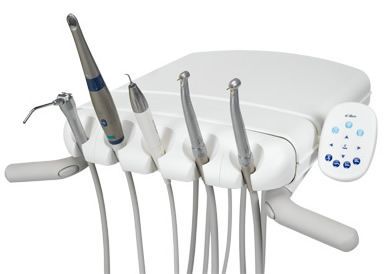
What is a HIPAA (Privacy & Security) Officer?
Gain Clarity on HIPAA Compliance: What a HIPAA Officer Is and Their Essential Duties!

HIPAA Privacy & Security Officer
Job Summary: The HIPAA Privacy and Security Officer is responsible for developing, implementing, and overseeing the clinic’s privacy and security policies in compliance with the Health Insurance Portability and Accountability Act (HIPAA). This role ensures the protection of patient health information (PHI) and monitors compliance with HIPAA regulations, safeguarding both digital and physical records. The officer will lead initiatives to educate staff on privacy and security protocols and respond to potential breaches or violations.
Principal Responsibilities:
1. HIPAA Compliance Program Management
- Develop, implement, and maintain the clinic’s HIPAA privacy and security policies to defend protected health information (PHI).
- Regularly assess risks and vulnerabilities related to patient data security and implement corrective measures.
- Conduct periodic audits of the clinic’s compliance with HIPAA requirements, both on the privacy and security sides.
- Work with IT and administrative staff to ensure appropriate safeguards are in place to protect electronic PHI (ePHI).
2. Training & Education
- Coordinate or provide ongoing HIPAA privacy and security training to all staff, ensuring employees know their responsibilities in protecting PHI.
- Lead new hire orientations and coordinate annual training on privacy and security best practices.
- Serve as a resource for staff regarding questions or concerns about HIPAA compliance.
3. Incident Management & Reporting
- Investigate and respond to suspected HIPAA violations or breaches of PHI, conducting risk assessments and determining necessary actions.
- Ensure the timely reporting of breaches to affected patients and regulatory bodies, following the appropriate breach notification protocols.
- Maintain documentation of all incidents and corrective actions, ensuring compliance with federal and state reporting guidelines.
4. Privacy & Security Advocacy
- Promote a culture of privacy and data security throughout the clinic, ensuring patient information is always protected.
- Act as the main point of contact for all HIPAA-related inquiries from staff, patients, and regulatory bodies.
- Collaborate with management and IT to continuously improve the clinic’s security practices, keeping pace with evolving regulations and technologies.
5. Regulatory Compliance
- Stay current on HIPAA regulations and state-specific privacy laws that apply to healthcare practices.
- Conduct regular risk assessments and self-audits to ensure privacy and security standards compliance.
- Ensure that business associate agreements are in place and all vendors are HIPAA-compliant.
Qualifications:
- Bachelor’s degree in health information management, Compliance, or a related field (preferred).
- Comprehensive knowledge of HIPAA privacy and security rules and regulations.
- Experience in managing privacy and security programs within a healthcare setting.
- Strong leadership and communication skills, with the ability to train and influence staff.
- Ability to conduct audits, investigate incidents, and manage compliance documentation.












